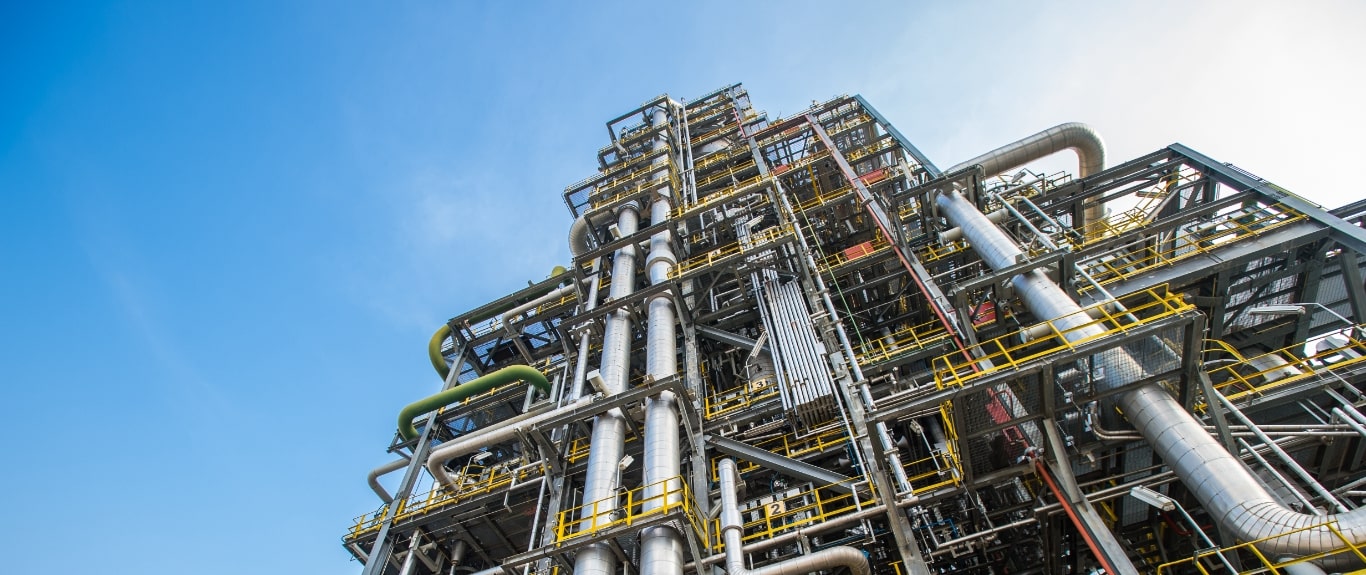At HMC Polymers, we are committed to the maximum level of HSE compliance, which includes the management of resources and product innovation leading to sustainable development.

HSE Policy
As a PP producer, we are obliged to work safely to ensure that
- Our top priority is the health and safety of our employees, contractors, customers, and communities
- We safeguard the environment of communities where we operate
- We uphold cordial relations with all our stakeholders
- We continually abide by the HSE Policy, look after all projects with Responsible Care, as well as managing HSE together with quality aspects to deliver excellent business performance.
HSE Objectives

HSE Management System
Our HSE Management System defines and audits the performance efficiency of work and employees to ensure that our workforce masters the requirements and guidelines to the efficient safeguarding of the health and safety of stakeholders, communities, and colleagues.
Responsible for our own actions and repercussions, we seriously value HSE management practices and try our best to responsibly fulfill our service duties. In addition, we communicate openly with stakeholders about HSE problems and issue policies, standards, procedures, and training at workplaces so that our employees and contractors may operate safely, hygienically, and responsibly for the environment.
At HMC Polymers, compliance with all applicable laws and regulations is the basic guidance. Alternatively, applicable company standards are to be more stringently enforced as seen fit.
We are convinced that zero accident is possible; in fact, it always represents our key goal. We are committed to continuous development, building our performance on good scientific research, risk assessment, and cost-benefit analysis to measure, audit, and communicate our performance with all stakeholders candidly.
Environmental Management System (EMS)
We have established an EMS to manage environmental projects in a comprehensive and systematic way. EMS documents are prepared to help us set up and assess the efficiency of work procedures while defining environmental policies with clear and measurable objectives.
HSE Reporting
Reporting Period: 1st - Half 2024
Total Recordable Cases (TRC) per 1.7 million working hours
Total work hours lost = 4
(Contractors TRI included)
Energy (Electrical + Steam)
Energy required to produce per ton of Polypropylene = 2,449.24 MJ/Ton
Energy required to produce per ton of Propylene = 12,689.39 MJ/Ton
VOC Emissions
0.000099 ton/ton of PP product (10,802.40 kgVOC of Fugitive + 22,464.92 kgVOCs of total flare)
NOx Emissions
N/A
Water Withdrawal
1.76 /ton of PP product
COD
0.0096 kg/ton of PP product
Total Industrial Waste
560.99 tons
Energy Recovery (Included in Total Waste)
147.17 tons
Recycle (Included in Total Waste)
311.33 tons
Reuse (Included in Total Waste)
75.69 tons
Incinerator (Included in Total Waste)
26.8 tons
VOC Emissions
0.000037 ton/ton of PDH product (574.25 kgVOC of Fugitive + 2,371.46 kgVOCs of total flare)
NOx Emissions
0.0002 tons/ton of PDH product
Water Withdrawal
8.25 m3/ton of PDH product
COD
0.0398 kg/ton of PDH product
Total Industrial Waste
181.81 tons
Energy Recovery (Included in Total Waste)
87.23 tons
Recycle (Included in Total Waste)
16.38 tons
Reuse (Included in Total Waste)
18.06 tons
Incinerator (Included in Total Waste)
24.88 tons
HSE Reporting – Definitions
Accidents resulting in work absence, requirement to work on other duties, or other cases needing medical attention. TRC is determined from the total number of accidents per million man-hours of HMC Polymers’ employees and contractors serving in its plants.
The total usage of energy vectors (including fuels, electricity, and steam). Electricity and steam are converted into primary energy with the standard conversion factors of 40% (electricity) and 90% (steam).
Emitted organic compounds (from C1 to Cn) with 0.01 kPa vapour pressure or more at room temperature or actual processing temperature. Volumetric calculation is based on measurement and estimates.
Emitted nitrogen oxides from applicable sources, including flares. The emissions are nitrogen dioxide (NO2). Pollution factors are correlated with fuel types and heating values.
All the fresh water extracted from surface and underground sources for all applications, including cooling, steam generation, and sanitation.
The oxygen volume used by chemicals to digest organic substances, a means of measuring water quality. Specifically, it refers to the oxygen volume needed for chemical oxidation of wastewater contaminants.
Included in the definition of waste is all waste generated, needing disposal in HMC Polymers’ plants for regular operations and special projects, except for atmospheric emissions for liquid waste and by-products with commercial value. Waste resulting from HMC Polymers’ operations is managed under its sustainable development policy under the Zero Waste to Landfill objective.
Economic preservation of materials for environmental benefit, achieved by lowering the need for new materials and waste absorption without undergoing additional processes.
Processing of products to resemble or differ from waste.
This is for the purpose of reusing waste energy through a recovery process.
These include other disposal methods not included above, including direct incineration in a furnace designed for hazardous materials or in a cement kiln or physical and chemical treatment.
Responsible Care® is a project voluntarily initiated by chemical industries worldwide. Member companies collaborate through a national association to continuously improve HSE efficiency and communicate with stakeholders about their products and processes.
HMC Polymers is a founding company of this project in Thailand with the oversight of the Federation of Thai Industries Petrochemical Club (FTIPC).
Initiation of the project has helped the chemical industry enhance its safety efficiency while operating with care for future generations. The project has garnered praise from the United Nations Environment Programme (UNEP) at the 2002 World Summit on Sustainability, calling it instrumental to sustainability.
Membership of the project calls for organisation commitment to maintaining the following components of operations:
- Measurement and public reporting of performance
- Implementation of the project’s Security Code
- Application of a modern Responsible Care project management system for successful audit outcomes
- Independent certification that the management system for workplaces and operations conforms to professional standards
- An ISO standard certification letter.



